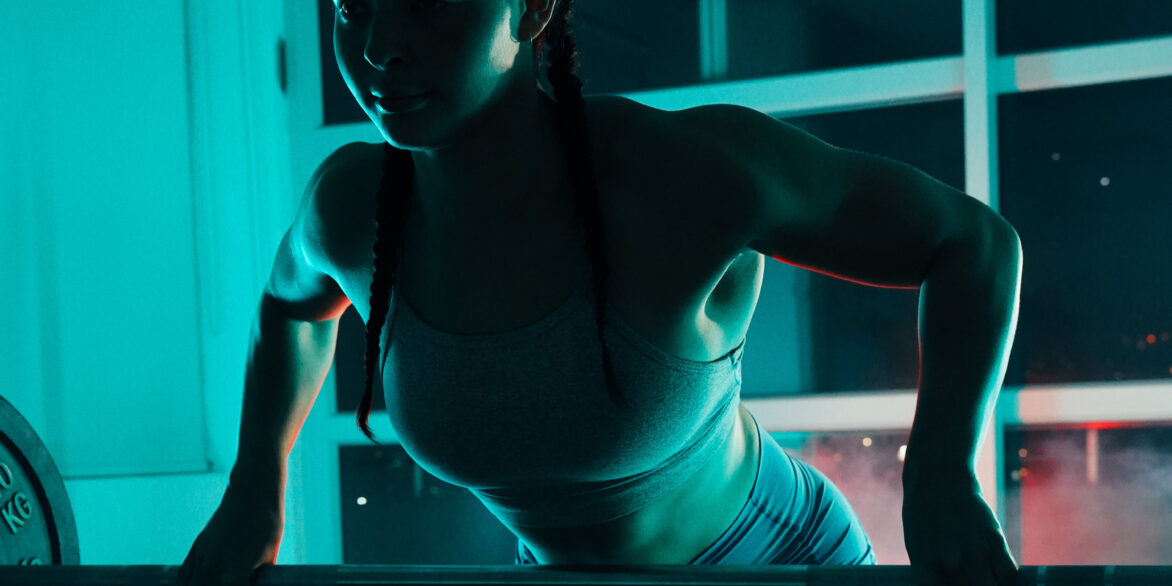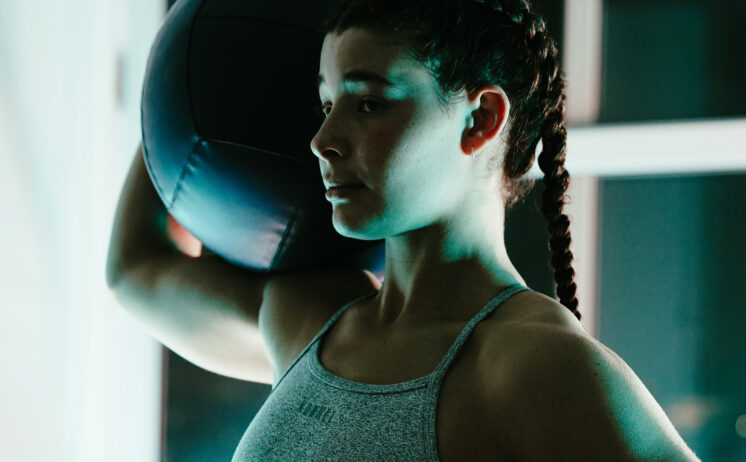The Top 10 Concussion Questions

Dr James McLoughlin, Co-Director of Your Brain Health answers our 10 most common questions about concussion.
How common is concussion?
It’s more common than most people might think. In Australia we estimate that around 180,000 concussions occur each year. In the US that number could be well over 2 million!
Why do you think concussion is now a such a big issue?
It’s interesting to see the change in media and community messaging around concussion. It has improved awareness around brain injury and brain health which is great. But there is also plenty of misinformation out there too, which means we need to work extra hard around community education.
Research around the effects of concussion and brain injury has helped us understand the negative impact it can have on so many people’s lives. The most alarming is the effects of repeated head impacts on increasing risk of degenerative neurological conditions like Chronic Traumatic Encephalography (CTE). But the effects of concussion have also been termed the ‘silent epidemic’ where people live with persistent signs and symptoms of traumatic brain injury, where their quality of life is impacted by mental health, cognitive effects, and physical impairments, often without appropriate clinical care and support. These people still fall through the cracks unfortunately, but I see their stories are starting to come out through the media over the past few years.
In sport, players sustain a concussion and often continue to play on. Is that such a big problem?
When the brain and brainstem is subject to biomechanical forces, it leads to stretching and shearing of brain cells. These injured cells begin to change their activity, they become inflamed and there are additional changes to blood supply as well. The injured brain at this point is working exceptionally hard to adapt and recover, which leads to an ‘energy crisis’. If your brain is subject to further activity at this point, it leads to worsening symptoms which can be delayed, and persistent symptoms and worse outcomes are more likely. The slight confusing thing is that, during this stage you can continue to function, and run, jump and kick etc, but the stressors on the brain at that stage are causing harm. This means you will be making a mild brain injury worse. Also, the risk of anther hit to the brain at this stage could be potentially disastrous.
So, if you play on with sprained ankle or knee or with a shoulder tendinopathy, these structures are also not getting the rest they need to recover and in later years these joints may remind you of the sacrifices you made with pain, degenerative change, and arthritis! However, the brain also ‘keeps the score’ and that can leave people with issues that are extremely serious such as depression, dementia, and suicide. So, it makes sense that we like to minimise brain injury and ensure adequate recovery before returning to sport.
Is it difficult to diagnose a concussion?
No! You might think that assessing a complex brain function is difficult, but it is not! Everyone can diagnose suspected concussion. If after a knock or fall someone looks stunned or dazed, off balance, has visual symptoms, confused, emotional, slow, or has problems with memory, headache, dizziness – these are common signs of concussion that we can all diagnose. These signs and symptoms might be very brief or might be delayed. Also remember, in only about 10% of concussions is there a loss of consciousness. The most important message is to ‘make the call’ – yes you suspect concussion, now we must monitor recovery and guide the best care earlier rather than later. And the good news is most people will make a full recovery within 3- 4 weeks.

What are red flags?
Red flags require immediate medical attention, which means calling emergency services and getting to hospital. Red flags are not always related to concussion injury, but rather other very serious conditions that require immediate and appropriate care such as spinal cord injury, brain bleeds, and brain swelling. Some red flags include.
- Neck pain
- Vomiting
- Seizures, convulsions, or involuntary posturing
- Severe or increasing headache.
- Weakness, sensor loss or pins and needles
- Double vision
- Loss of consciousness or deteriorating conscious state
- Increasing agitation, restlessness, or emotional state
What is the difference between ‘mild traumatic brain injury’ and ‘concussion’?
Currently experts have agreed that if there is normal neuroimaging such as MRI or CT scan, the terms ‘mild traumatic brain injury’ or ‘mild TBI’, and ‘concussion’, can be used interchangeably. It is much more common to have a normal brain scan. Personally, I like to use ‘mild traumatic brain injury’ when I want to reinforce the seriousness of this issue, because sometimes the impact of the term ‘concussion’ has historically been underplayed!
Are there treatments that help people recover from concussion?
Yes. This is a message that is missing from recent awareness campaigns. Early treatments help. For example, early prescribed aerobic exercise that limits symptom provocation helps even in the first week. Also, neurological physiotherapy treatments that blend neck treatment with eye and vestibular exercises help reduce persistent symptoms and speed up return to learn and play. But is doesn’t stop there. Early monitoring of mental health, cognitive changes, headache, and sleep allow health professionals to be proactive in providing the best care. In the case of more moderate and severe brain injury, multidisciplinary neurological rehabilitation is needed, and early intervention and referrals improve outcomes for these people too.
How long does it take to recover from concussion?
Well, you are going to hear different answers here, depending on what defines ‘recovery’. For most people the brain physiology will recover in 3-4 weeks, yet symptoms can settle within 2 weeks. In our clinical teaching, we say if symptoms stay beyond 3 weeks you have ‘persistent symptoms’ and you need specific treatment. About a third of people (new research suggests possibly more) have persistent symptoms that last anywhere from 3 weeks to many months, even years. While this is concerning, even in these people we do see improvements and recovery if they received appropriate rehabilitation.
Schools and sporting clubs are recommended to use baseline screening. What is the best type of baseline screening?
Your Brain Health has been following the scientific evidence on baselines screens closely over recent years as we have seen a shift in thinking. The main focus now for baseline testing is to help identify signs and symptoms that help guide the best early treatments, especially in signs and symptoms that are associated with poor recovery if not managed appropriately. Therefore, at You Brain Health, we believe multimodal assessments that screen medical history of concussion, migraine, learning disorders, mental health and sleep is vital, symptom reporting is still important, as well as objective tests of vestibular-ocular functions, cognition, and balance. This is a change from many recent trends that have focused mainly on symptom reporting and brief cognitive tests (some computer-based). These tests, while useful for diagnostic purposes, have limitations in relation to informing the actions for best care. My advice is to look for multimodal screens that use objective tests, including vestibular-ocular assessments in addition to relevant medical history. Baseline tests also need to be feasible and time efficient, so Your Brain Health Screens take only 15 minutes!
What makes a school or sporting club ‘concussion ready’ at Your Brain Health?
Education is by far the most important factor. That means that teachers, trainers, coaches, students, and players are all aware of the latest information about the ‘end-to end’ management of concussion. First aid response, identifying red flags, correct advice and referrals are key. This also includes a clear plan for return to learn and return to play protocols that are updated.
Schools and clubs can offer the opportunity for multimodal baseline screening each year, to help improve concussion assessment when they occur and to help with the best brain health tracking. Baseline testing is also another opportunity to educate and discuss health issues at an individual level, such as improving the management of sleep, migraines, and mental health, and we can discuss what to do in the event of a concussion.
Concussion passports allow us to help track your brain health over time to help provide informed decisions for return to learn, work, and play if they are signed off by a medical practitioner.
So, education, offering multimodal baseline screening and following latest ‘return to’ protocols will mean your organisation is ‘Concussion Ready’ with Your Brain Health!

